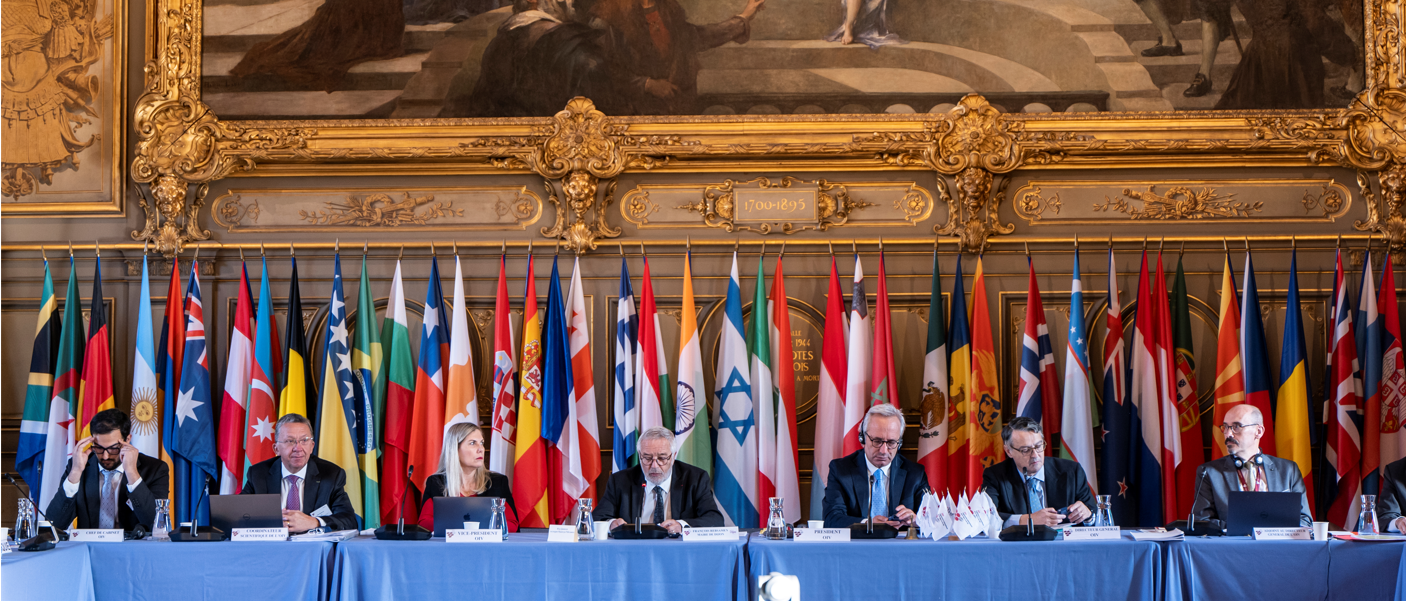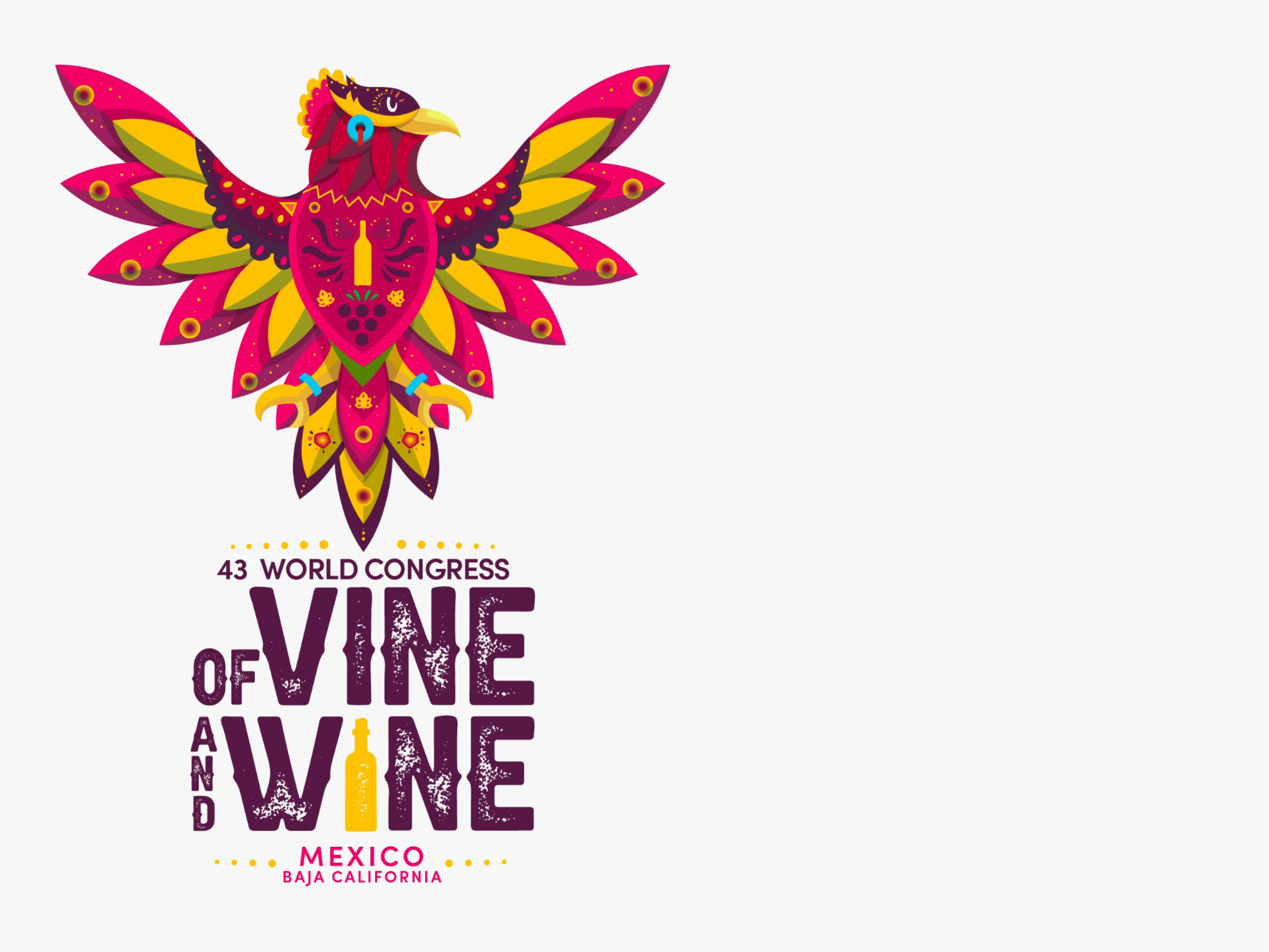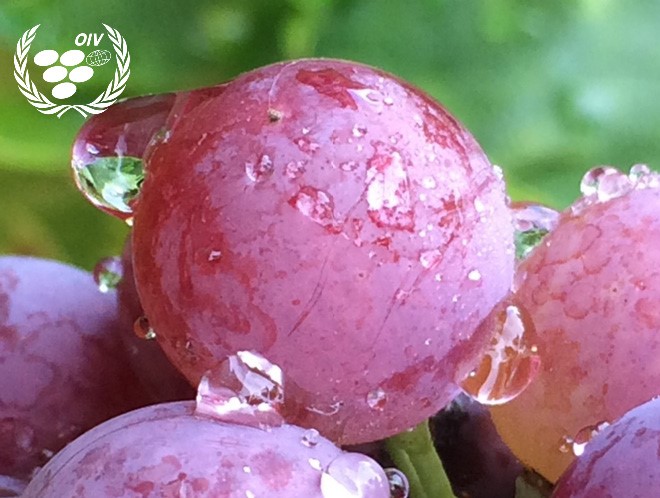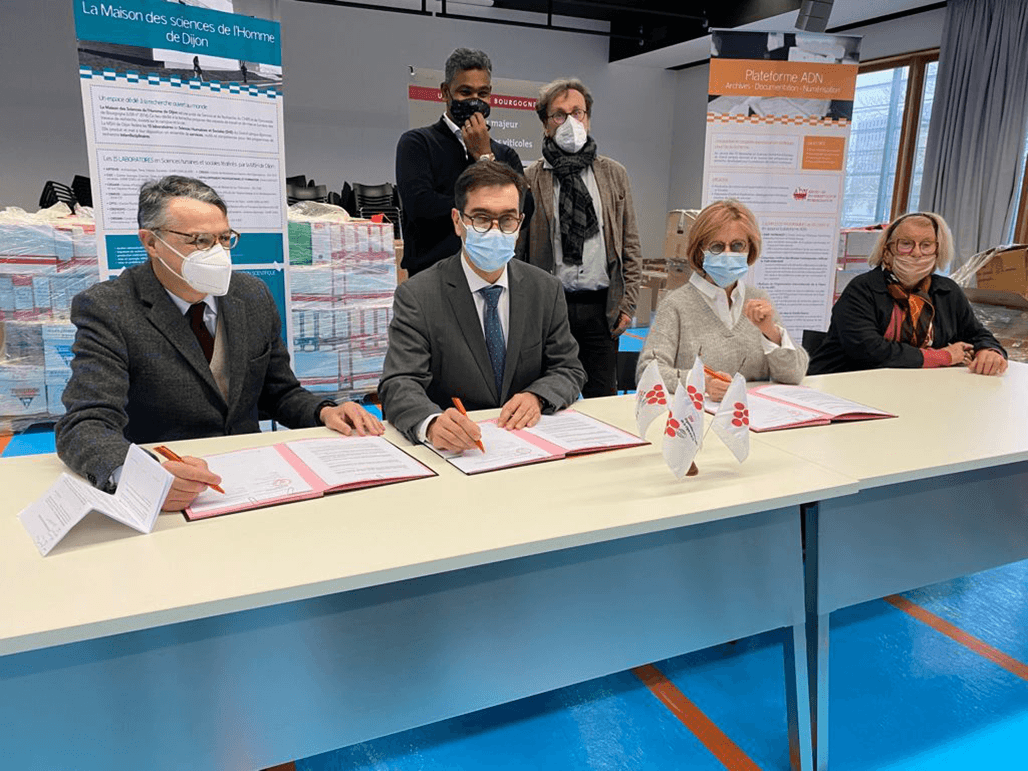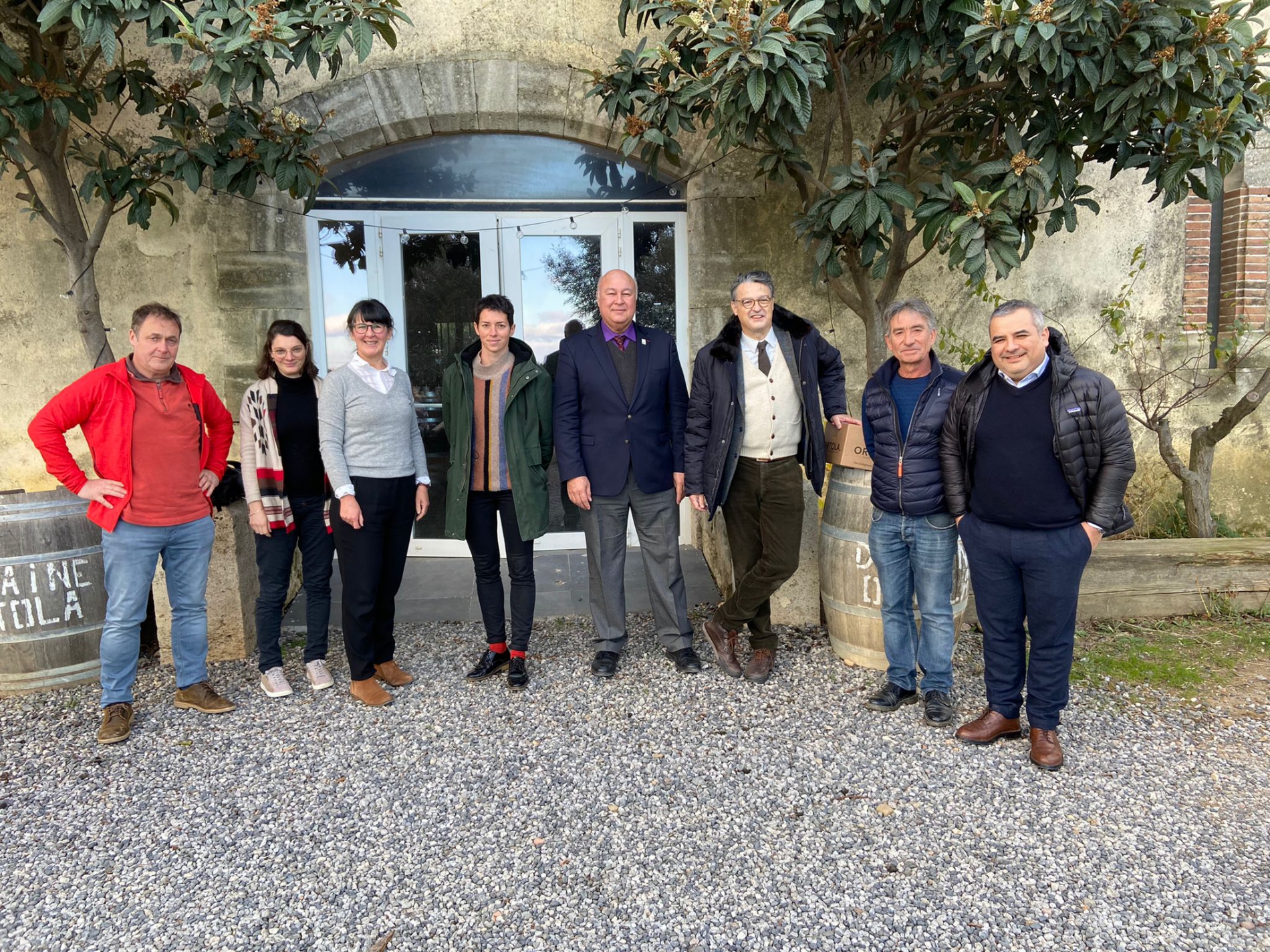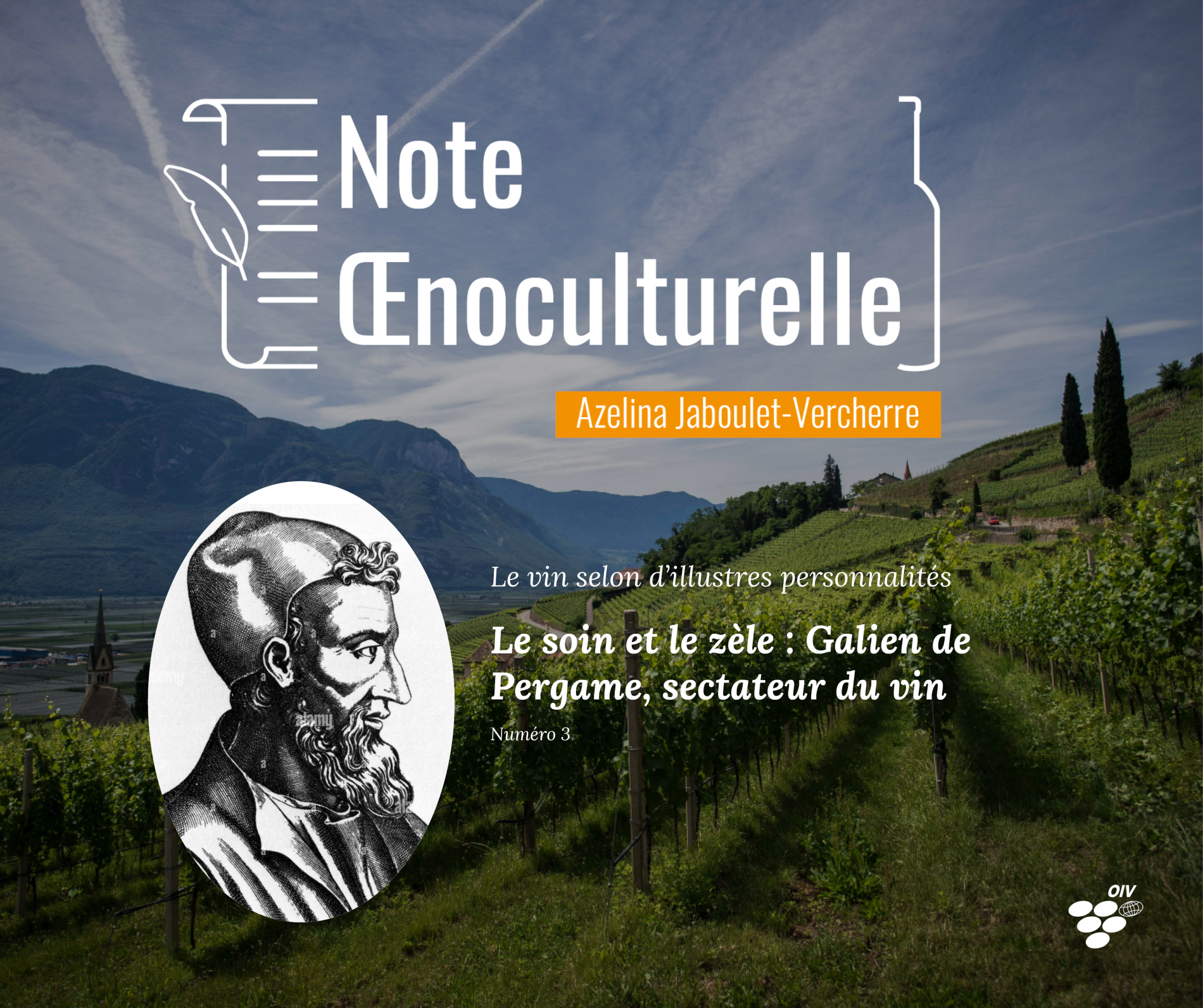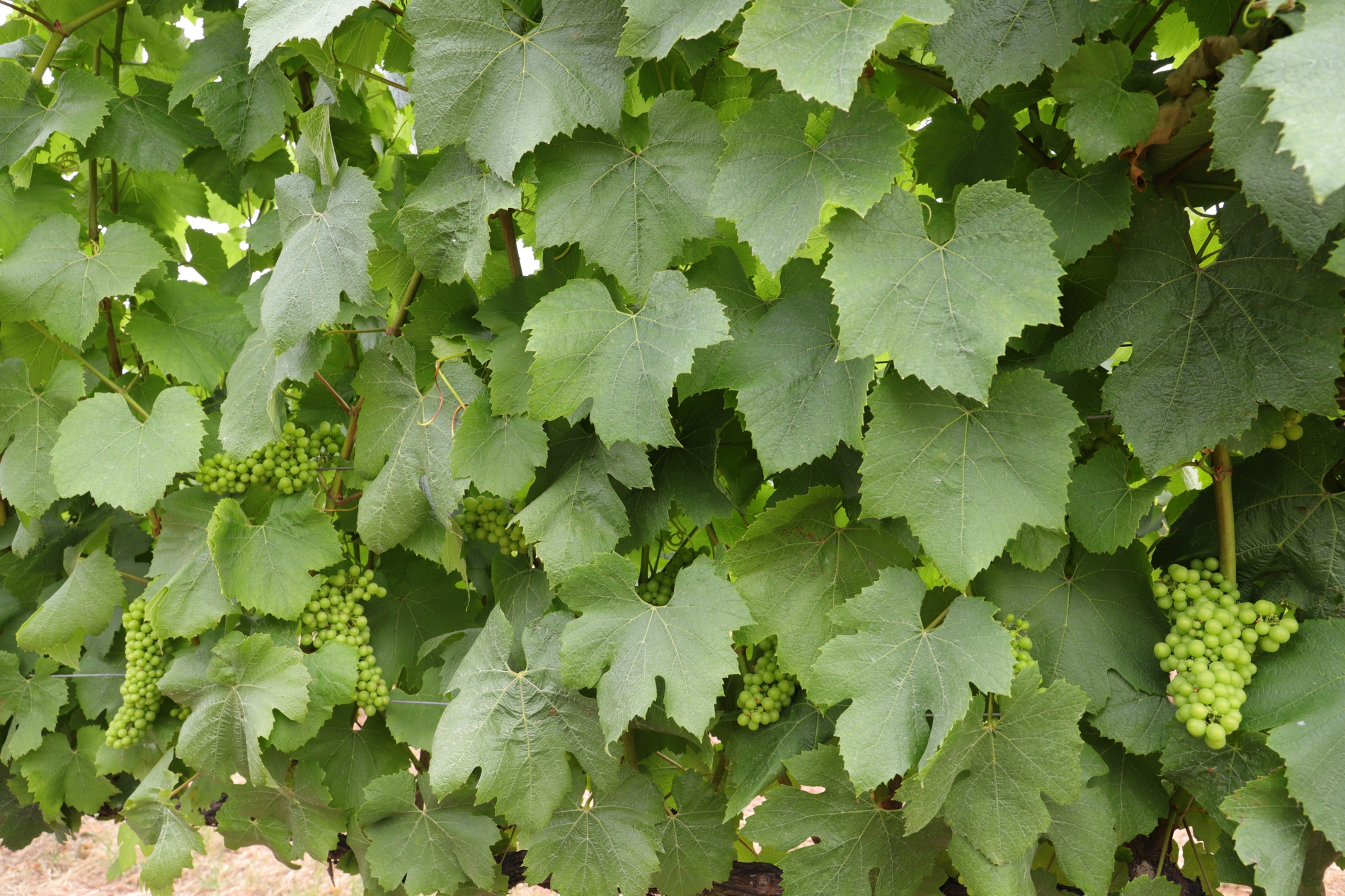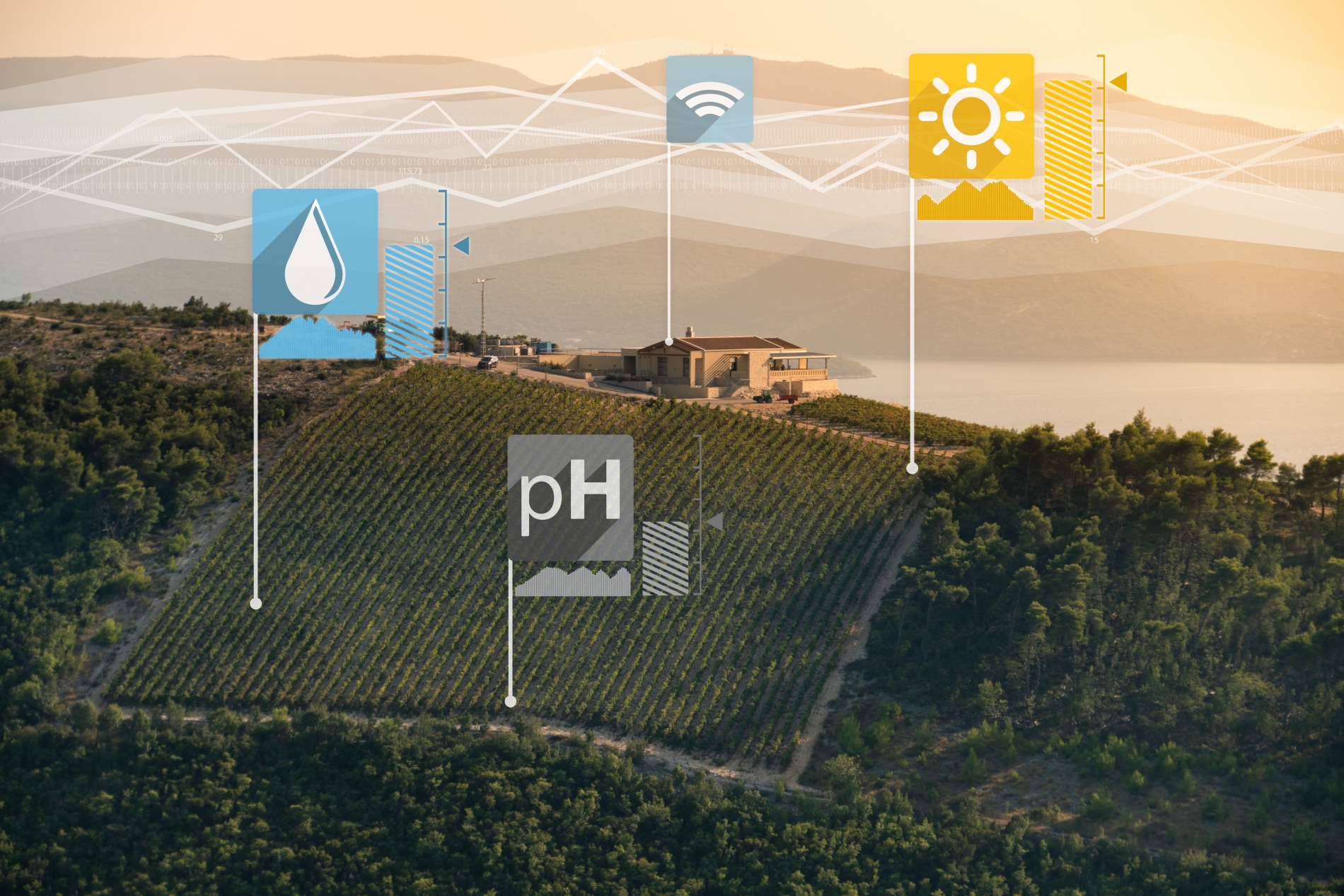13 Feb 2022
1.Head of Unit: Viticulture Job Description: Under the supervision of the Director General and the direct authority of the Scientific and Technical Director, to participate in the smooth running of the OIV's scientific activity and mainly to ensure the animation of the Viticulture Commission, the Table Grapes and Raisins Sub-Commission and the dependent groups of experts.Location: Until 31 July 2022, Paris, FRANCE / from August 2022, Dijon, FRANCE. Date of entry into service: As soon as possibleHow to apply: Fill in the form and send it completed to: job@oiv.intDeadline for submitting application: 1 April 2022 at noon2. Head of Unit: Oenology Methods of analysis Job description: Under the supervision of the Director General and the direct authority of the Scientific and Technical Director, to participate in the smooth running of the OIV's scientific activity and mainly to ensure the animation of the Oenology Commission, the Methods of Analysis Sub-Commission and the dependent groups of experts. provide the secretariat for the Oenology Commission, the Sub-Commission on Methods of Analysis and the dependent expert groups, such as Technology Microbiology and Specifications of oenological products. Location: Until 31 July 2022, Paris, FRANCE / from August 2022, Dijon, FRANCE.Date of entry into service: As soon as possibleHow to apply: Fill in the form and send it completed to: job@oiv.intDeadline for submitting application: 1 April 2022 at noon3.Head of Unit: Safety and Health Job description: Under the supervision of the Director General and the direct authority of the Scientific and Technical Director, to participate in the smooth running of the OIV's scientific activity and mainly to lead the Safety and Health Commission and the dependent groups of experts. To provide the secretariat for the Safety and Health Commission and related expert groups, such as food safety, consumption, nutrition and health. More information in the FORM. Location: Until 31 July 2022, Paris, FRANCE / from August 2022, Dijon, FRANCE.Date of entry into service: As soon as possibleHow to apply: Fill in the form and send it completed to: job@oiv.int Deadline for submitting application: 1 April 2022 at noon 4.Data ManagerJob description: Under the supervision of the Head of the Statistics Department : Prepare and update questionnaires and statistical surveys, Receive, review and input data from Member States and other sources, Conducting online searches and data extractions, Check the completeness, internal consistency and plausibility of the data, Maintain appropriate technical documentation on data series and write methodological notes on OIV statistics, Participate in the maintenance of the statistical database. Location: Until 31 July 2022, Paris, FRANCE / from August 2022, Dijon, FRANCE.Date of entry into service: As soon as possibleHow to apply: Fill in the form and send it completed to: job@oiv.intDeadline for submitting application: 1 April 2022 at noon.2.Secretariat Scientific and Technical DepartmentJob Description: Under the supervision of the Director General and the direct authority of the Scientific and Technical Director and in coordination with the Heads of Unit, the Secretary of the Scientific and Technical Unit will ensure: management of commission, sub-commissions expert group meetings, delegation requests, convocations, calendars, badges; follow-up on the evolution of draft resolutions and comments, as well as minutes, agenda, formatting ; publication/dissemination of working documents; management of the collaborative work platform; delegation managementLocation: Until 31 July 2022, Paris, FRANCE / from August 2022, Dijon, FRANCE.Date of entry into service: As soon as possibleHow to apply: Fill in the form and send it completed to: job@oiv.intDeadline for submitting application: 1 April 2022 at noon
09 Feb 2022
The 43rd World Congress of Vine and Wine and the 20th General Assembly of the International Organisation of Vine and Wine (OIV) will take place from 31 October to 4 November in Ensenada, Baja California, Mexico, at Baja California Center. To know more about the Congress and register, please check the Congress Website Members of the vitivinicultural scientific community are invited to submit an abstract on the OIV platform of abstracts Important dates: • Deadline for the submission of abstract: 23rd April 2022 • Information about the decision:26th May 2022 • Deadline for the final papers submission: 9th September 2022 Read the call for papers here Baja California is one of the 14 wine-producer states. It currently contributes 75% of national production. It geographically adjoins the Pacific Ocean, obtaining its Mediterranean weather, ideal for wine production. The agricultural valleys are located between 20 and 550 meters above sea level; Baja California currently houses 260 vine producers, 170 winemaking projects, which represent 70% county-wide. It is the state with greater grape diversity used for winemaking production-wise and experimental-wise. Our well known Valle de Guadalupe is a wine tourism platform for oenophiles, but also for people that want to introduce themselves in the wine industry.
02 Feb 2022
In December 2021, the BECA- the European Parliament’s Special Committee on Beating Cancer -approved its report which stated that there is no safe level of alcohol consumption. Now, the European Parliament will vote on 14th of February the adoption of the report that could recommend to include “health warning labels”. Therefore, wine could be considered as a potential carcinogenic beverage along with other alcohol beverages and as we see today with tobacco. However, the OIV has always encouraged responsible drinking and has published many works on the research into the effects of moderate wine consumption on health. Wine could be considered as a potential carcinogenic beverage along with other alcohol beverages and as we see today with tobacco. Therefore, and given the common objectives with the World Health Organisation in promoting a healthy way of life, cooperation must be crucial between both Organisations and we need to foster a full transparent space for participation.
Read Russian Version here
01 Feb 2022
Registration form: www.oiv.int or jurydesprix@oiv.int● Paper printed books with PDF in the 12 categories.● Interactive digital tool (E-learning, Website…) in the categories: Viticulture and Sustainable Vitiviniculture, Oenology, Vitivinicultural Economy and Law, History, Literature and Fine Arts, Wine and Health.Advertising and commercial documents are not accepted.For more information: [FR] [EN]Further information: jurydesprix@oiv.int
31 Jan 2022
Plus de 180 cartons contenant près de 6000 ouvrages et 40 m3 d’archives de l’OIV sont arrivés à la Maison des Sciences de l’Homme à Dijon aux fins de traitement numérique dans le cadre du programme de transformation digitale adopté par les Etats membres de l’OIV.Le directeur générale s'est réjoui de renouveler avec l’Université de Bourgogne et le Centre National de la Recherche Scientifique la collaboration qui a déjà permis en 2016 la numérisation complète du Bulletin de l'OIV (1927-2014). Les 1000 numéros numérisés et indexés sont accessibles sur la plateforme numérique de la MSH.Cette nouvelle étape, planifiée sur trois ans, devrait permettre le dépouillement, le classement et la cotation du fonds d’archives et du fonds d’ouvrages de l’OIV, constitutifs d’un patrimoine scientifique et historique exceptionnel.Après un inventaire descriptif et bibliographique, la numérisation des archives et d’ouvrages anciens permettra de mettre à la dispositions des experts, des délégués, des chercheurs et aussi du grand public, un fonds unique spécialisé dans le domaine de la vigne et du vin, témoin du premier centenaire de l’OIV.Le Président de l’Université a souligné l’importance de cet accord qui renforce la reconnaissance du pôle spécialisé de traitement documentaire de la plateforme « Humanités Numériques » de la MSH. Cette nouvelle étape de coopération permettra de valoriser la création d’un centre mondial de documentation vitivinicole. Vincent Thomas s’est également félicité que ce projet associe la Chaire UNESCO « Culture et Tradition du Vin », renforçant ainsi le positionnement international de ce partenariat.A l’occasion de cette visite, le Directeur général de l’OIV a également poursuivi avec le maire de Dijon, François Rebsamen, les échanges sur le processus de mise à disposition de l’Hôtel Bouchu d’Esterno dans lequel l’OIV installera son siège en 2024 pour le centenaire de l’Organisation. Pau Roca a également visité les locaux de la Cité Internationale de la Gastronomie et du Vin qui accueilleront le secrétariat de l’OIV à partir du mois d’aout 2022.
18 Jan 2022
On 2 December 2021, OIV Director General Mr Pau Roca visited the Montpellier region for a day dedicated to the theme of “Sustainable viticulture: the role of agroecology and soil management”. This visit was also about deepening relations between the OIV and the “4 per 1000” initiative, thanks to the attendance of its Executive Secretary, Mr Paul Luu. It was held at the Notre Dame du Quatourze estate owned by Mr Georges Ortola, who presented the agroecological practices that are implemented on his estates: inter-row cover cropping, tillage reduction, return of pruned canes to the soil, grazing, etc. The importance of good pruning practice has also been emphasised by Mr Alain Canet, President of France’s Centre National d’Agroécologie, who pointed out that pruning problems were recurrent in vineyards and had negative impacts on vine health. Florence Jard, from the “Pour une Agriculture du Vivant” association which works for the transformation of the agri-food sector to agroecology, gave a presentation of the Regeneration Index applied to vines – this makes it possible to evaluate holdings’ agroecological level.“There was a shared vision of the importance of disseminating these practices to the sector as a whole.”This day allowed for a rich exchange of ideas between stakeholders practising agroecology on a daily basis and institutional stakeholders. There was a shared vision of the importance of disseminating these practices to the sector as a whole. The OIV, via the “Viticulture” Unit led by Mr Alejandro Fuentes Espinoza, who is also a member of the “4 per 1000” initiative's Scientific and Technical Committee, takes this topic very seriously. On 19 January 2022, another meeting was held between the executive bodies of the OIV and the “4 per 1000” initiative to contemplate the details of this collaboration. On this occasion, Ms Anne Reutin, a researcher at the OIV, presented her work on carbon issues in the vitivinicultural sector and the importance of taking these issues in hand in political, technical and scientific terms. Both institutions envisage working together and developing key areas of work as well as discussions to achieve progress at the international level on this major topic of soil health and safety.
Read Russian version here
09 Jan 2022
The works of Claudius Galenus (129–200/210) are said to represent nearly one-eighth of the total Greek literature preserved from the time of Homer to the end of the second century CE. Yet many of his treatises have been lost and others transmitted only through translations into Latin, Arabic and, more rarely, Hebrew. Armed with a solid grasp of classical literature and philosophy, and thus with great sophistical skill, Galen excelled in the field of natural philosophy. Throughout his life, he sought to elevate medical science to the status of an art, while continuing to refine his practice in Smyrna, Corinth, Alexandria and Pergamum, where he was physician to the gladiators1. This search for a noble alliance between theory and practice is perfectly expressed in his treatment of wine, which is discussed throughout his works. As a famous descendant of the Hippocratic tradition, Galen commented extensively on its corpus, in particular On Regimen in Acute Diseases 2 . In his re-elaboration, Galen expanded the depth and breadth of his predecessor’s rigorous classification and named specific vintages to illustrate the major Hippocratic criteria: colour, taste, substance, fragrance, and medical virtues. In a treatise on antidotes, Galen identified different types of wine – firm, strong, weak (or watery), bitter, sharp – and rated their storage potential, which was mediocre for “white wines of little substance”, and significant for “strong, sharp and thick white wines”. Sorrento and Falernian wines stood out from the rest. Indeed, he saw them as essentially interchangeable3. Indeed, the reason for the two wines’ similarities had to do with terroir, which Galen acknowledged as important, and linked to the ageing potential of wines (beyond twenty years). Although he was not the first physician to praise the therapeutic uses of wine, he was unique in the meticulousness with which he described the specific qualities of a large number of wines. Such zeal undoubtedly makes him one of the first enlightened oenophiles in the history of thought4.
“Is it necessary to talk about the wine of Sorrento? Everyone knows that it stays young for about twenty years. It keeps its strength during all this time, remains good to drink for a long time, is not inclined to become bitter; it has the same characteristics as Falernian wine.” Galen, On Antidotes, I.3 3Like most of us, Galen displayed a certain chauvinism in taste, which he balanced with an insatiable curiosity. Beyond the wines of Asia Minor, he recognised the value of Italian wines, on several occasions admitting a particular fondness for the renowned Falernian. Galen referred to it as a wine with an exceptional bouquet, capable of satisfying both the objectivity of the oenophile and the subjective pleasure of the amateur. Even if words alone are not enough to describe sensory experiences, Galen argued that wine can unite emotion and intellect. How else is it possible that when we taste a wine for the first time, we are able to recognise it from a simple description we have read? The very same description can even intensify the experience5. Within the much-prized category of Falernian wines, Galen distinguished two main varieties according to their smoothness, and he showed particular appreciation for the distinctive Faustian variety6. The sweetness of Faustian created a balance between the astringent and the pungent, the two other main flavours Galen used to classify wine. If flavour revealed the consistency and virtues of a wine, then the smooth complexity of Faustian wine made it an ideal ingredient for the preparation of antidotes, in particular theriac, the most efficacious antidote of them all7. Galen’s opuscule entitled The Book of Wines deserves particular attention. Extremely concise, it is written in the Hippocratic tradition and was frequently referred to by others physicians in ensuing centuries, rather like a vade mecum of medical literature on wine8. In this pamphlet, Galen primarily examined the substance of different kinds of wine, starting with the clearest, which “men call watery” because of its similarity to water in colour and consistency but also, as he explained, because of its low astringency. The taste of this wine was largely indistinct, and Galen advised against adding a large quantity of water to it so as not to lose the little substance it possessed9. Such wine owed its diuretic value to the speed of its dispersion in the body. For unlike water, it was not cold in nature, although its heat was moderate compared with that of other wines. This clear wine strengthened the lungs and fluidified the humours (not only the blood); its low heat did not harm those who were feverish (unlike other wines and impure waters); and it was also suitable for young people and people of choleric complexion, who had a predominantly hot and dry character. Lastly, it protected against headaches and untimely abdominal swelling10. After enumerating the qualities of watery wines, Galen then proceeded to give a contrasting description of thick, sweet wines. This dichotomy made it possible for his successors to continue the search for perfect compatibility between the nature of humankind and the substance of wine. For premodern scholars, the search for harmony between wine and the drinker was far more important than finding the perfect pairing between wine and food, which is the primary concern of consumers today. Galen was inspired, in a metaphorical way, by this proximity between wine and the human body; it allowed him to explain physiological functions, for example by comparing the formation of blood and the production of wine11. In a similar fashion, Galen used this comparison to explain the generation of humours and the acetic character of black bile or vinegar, which has a corrosive effect on the stomach12. He thought that wine followed the movements of the body; its good condition, the formation of healthy blood, was countered by the potential alteration of the humours into corrupt substances. For Galen, the flavour and fragrance of wine were inseparable from its substance, which forged its uniqueness and complexity. Likewise today, knowledge of wine and the search for multiple ways to talk about it, far from diminishing the emotional character of the tasting experience, opens it up to more subtle dimensions. But beyond a strictly physical phenomenon, Galen devised that tasting bestowed benefits upon the soul, which is necessarily governed by the body’s temperament13. In this way, wine granted Galen the authority to speak both as a servant of the medical art and as a representative of moral philosophy. Might we not heed his insights in our own day? -------------------------------------------- 1 For a presentation of Galen’s ‘medical art’, see Véronique Boudon’s introduction to her edition of Galien (Paris: Les Belles Lettres, 2000), Vol. 2, pp. 168–170; 224–252. 2 See Wesley D. Smith, The Hippocratic Tradition (Ithaca, N.Y.: Cornell University Press, 1979), esp. Chapter 2, ‘Galen’s Hippocratism’, p. 61–176. 3 Galen, On Antidotes I.3, Kühn XIV, 14–19. 4 See the introduction to works of Galien by Véronique Boudon (Paris: Les Belles Lettres, 2000), Vol. 2, pp. 168–170; 224–252. 5 Galen, The Distinction between Pulses, 11, Kühn VIII, 774–5. 6 Galen, On the Therapeutic Method, XII 4, Kühn X, 832. 7 Galen, On Antidotes, I.3, Kühn XIV, 20. 8 Numerous medieval manuscripts contain this text, including the MSS Paris, BnF Lat. 6865, fol. 53vb-54va; N.A.L. 343, fol. 69r-70r. (fol. 74-107 for De alimentis). Their content does not vary significantly from the edition used here (Venice, 1490, in Galen, Opera, Vol. 1, fol. 135vb-136rb). 9 Galen, The Book of Wines, Venice, 1490, Vol. 1, fol. 136rb. 10 Galen, On the Natural Faculties III.15. 11 Galen, On the Usefulness of the Parts of the Body, IV. 12 Galen, On the Natural Faculties, II.9. 13 Galen, The Capacities of the Soul Depend on the Mixture of the Body I.3.
07 Dec 2021
One of the new measures for the vitivinicultural sector is the official laying down of conditions for the dealcoholisation and partial dealcoholisation of wines. In defining this new framework, the EU has used the work of the OIV as a basis, in particular Resolutions OIV-ECO 523-2016, OIV-ECO 433-2012 and OIV-ECO 432-2012.The designation of the product category (a compulsory particular) is now to be accompanied by the terms “de-alcoholised” or “partially de-alcoholised” for the following products: “wine”, “sparkling wine” and “aerated semi-sparkling wine”. Total dealcoholisation is limited to products that do not benefit from a designation of origin or a geographical indication. Partial dealcoholisation is permitted for all wines, sparkling wines and aerated semi-sparkling wines.The alcoholic strength by volume threshold between “de-alcoholised” and “partially de-alcoholised” is the same as that accepted by the OIV in 2012, namely 0.5%.In line with OIV recommendations (OIV-OENO 394A-2012), the permitted dealcoholisation processes to partially reduce or almost totally eliminate the ethanol content in grapevine products are partial vacuum evaporation, membrane techniques and/or distillation.The wine sector continues to innovate and is sensitive to the changing concerns of consumers, while maintaining respect for the integrity and traditions of the product. OIV Member Countries are currently working on a framework defining specific oenological practices that would be applicable to these new products.
29 Nov 2021
The International Organisation of Vine and Wine (OIV) in cooperation with the French National Institute of Wine (IFV), is organising an international symposium on following topic: The Vitivinicultural sector: which tools to face current challenges? The symposium will be held in the frame of the International Horticultural Congress (IHC) is the most important scientific event organised every four years since 1959 in the fields related to horticulture (fruit, vegetables, aromatic and medicinal plants, seeds and roots, ornamental plants, landscaping, vineyard.) under the auspices of ISHS (International Society for Horticultural Science).ISHS is a truly global network comprising over 6,000 members. Its aim is to promote and foster research and education in horticultural science and to facilitate cooperation and knowledge transfer on a global scale through events and publications.This symposium will address some of the major challenges facing viticulture for grape, raisins, juices and wine production worldwide: grapevine decline, soil preservation and management, and grapevine genetic diversity. A specific session will address the current challenges in the production of table grapes, dried grapes and non-fermented beverages.The following topics will be developed during the symposium :• Facing grapevine decline- Abiotic and biotic stress factors: climate change, harmful organisms, etc.- Vineyard management: viticulture practices, training systems, landscape management etc.- Economic and societal impact of grapevine decline• Sustainable management and conservation of vineyard soils- Soil conservation- Systemic and integrated management to improve soil quality: functional biodiversity, soil microbiota, etc.- The contribution of soil in climate change mitigation: carbon sequestration, low emission soil management practices, etc.- Impacts of climate change on soil composition and activity.• Preservation and improvement of grapevine genetic diversity- Resistant and ancient varieties to meet production and consumption challenges in a context of sustainability of the sector.- Ampelographic and molecular techniques for variety identification and selection.• Current challenges of viticulture in the production sector of table grapes, dried grapes and unfermented beverages- Technical and economic challenges in table grape and dried grape production- Food and health related challenges for producers and consumers of table grapes, dried grapes, and non-fermented beverages- Grapevine breeding programs: what are the specificities for the table grapes and dried grape sector?Submit your abstract here before Decembre 20th. Key Speakers : Cornelia Rumpel, CNRS, France and Gregorio Muñoz Organero, IMIDRA, Spain Where ?Angers, FranceWhen?
24 Nov 2021
The meeting brought together experts from the academia, governments, international organisations and the private sector from different countries: Dr. Adriaan Oelofse who is the Research, Development & Innovation Manager at WINETECH who spoke about the concept of smart vineyards, the professor expert in Artificial intelligence Dr. Bernard Chen from the University of Arkansas, professor at the Comillas Pontifical University and Blockchain expert Dr. Javier Ibañez, Mr. Fabián Torres who is a Principal Consultant at SICPA and also an expert in Digital Transformation and Guidance, and finally Mr. Olivier Oram, expert in Blockchain and founder of Chainvine, a business that helps reducing the cost of trust in moving wine all over and around the world".The event is very special for the OIV since it marks a milestone in the five-year strategic plan.“From its foundation in 1924 the approach of the OIV has always been one of taking advantage of the most recent evolution of all scientific knowledge and using the most innovating tools offered by technology to mankind”, said the OIV director General Pau Roca in his opening speech of the symposium. “It has been extremely interesting to also see how new technologies can help address some of the key issues to the sector such as sustainability, climate change, traceability, fraud prevention, or resilience”, said Mr Roca to conclude the meeting. As an international organization of scientific and technical nature, the OIV aims to inspire and provide guidance to all stakeholders, and ensure that such a transition is smooth, inclusive and benefits the whole sector with an equal measure, whether it is the industry, consumers, or governments.PPT by Giorgio Delgrosso, Head of Statistics & Chief DigitalTransformation Officer
Report on digital trends applied to the vine and wine sector
ReplaysReport on digitalisation. Presentation by Giorgio DelgrossoInterview: Professor Adrian Oleofse. Smart Vineyards. WINETECH Round table : Challenges and Opportunities of Digital Transformation in the vine and wine sector
